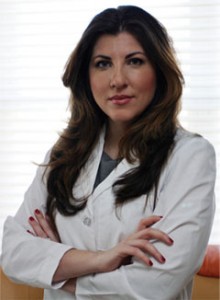Diagnostic Testing (Urine Testing, Blood Tests, ECGs, etc)
Posted by admin on June 17th, 2013
 “Diagnostic testing is an important adjunct to diagnosis. I use the results of blood tests, urine tests, ECGs and other tests, combined with my physical examination and a thorough history, to come up with the most likely diagnosis to fit your symptoms. I also use diagnostic testing to measure your response to the therapy I have prescribed. Accurate and timely diagnostics help me to treat you more effectively and efficiently”.
“Diagnostic testing is an important adjunct to diagnosis. I use the results of blood tests, urine tests, ECGs and other tests, combined with my physical examination and a thorough history, to come up with the most likely diagnosis to fit your symptoms. I also use diagnostic testing to measure your response to the therapy I have prescribed. Accurate and timely diagnostics help me to treat you more effectively and efficiently”.
-Dr. Zimilevich, MD
What are the different types of diagnostic tests, and what is their purpose?
Different diagnostic tests are used to test for different things. The following is a list of common tests and why they might be ordered:
Urine testing (urinalysis)- a simple urine test can yield a wealth of information about your health. It can tell me how well your kidneys are functioning, whether you have a urinary tract infection, whether you are diabetic or how well you are hydrated, among other things. A urine sample can be collected quickly and easily and there is usually no preparation involved except, of course, that you must have some urine in your bladder.
Pregnancy testing- I can determine whether you are pregnant from either a urine sample or a blood test. Urine testing simply verifies whether you are pregnant or not; blood testing can provide more information by telling me how much of the pregnancy hormone called hCG (human chorionic gonadotropin) is present in your blood.
Pulmonary Function Test (PFT)- A test called spirometry measures how much and how quickly you can exhale air from your lungs. The test is performed while you are siutting comfortably. You simply breathe into a mouthpiece attached to a spirometer, and the spirometer records how much air you breathe in and out over a period of time.
Sonograms/Ultrasounds– sonography uses sound waves to obtain images of soft tissues. No radiation is involved. Sonograms may be used to to view structures of the heart, abdominal organs (spleen, liver, kidney, gall bladder, aorta, kidneys, pancreas), the carotid arteries and the veins and arteries of the lower legs. Using ultrasound, I can diagnose or rule out a wide range of conditions.
Rapid Strep Test- many patients come to see me complaining of a sore throat. Many sore throats are caused by viruses, but some are caused by group A streptococcus bacteria, which can cause complications if left untreated. This test helps me determine who needs antibiotics for their sore throat and who will get better with rest and fluids (symptomatic care). The test involves swabbing the back of your throat, which is uncomfortable but only takes a few seconds.
Blood Tests- blood tests are very common and can help me rule out or identify many medical conditions. The following are some common blood tests:
- CBC (complete blood count)– this test is done to identify blood disorders and diseases such as infections, certain types of cancer, anemia, immune system dysfunction or blood clotting issues. It is probably the most common blood test ordered and is often ordered as part of a complete physical exam.
- Blood chemistry test/metabolic tests- blood chemistry tests measure levels of different chemicals in the blood and can provide valuable information regarding how well your bones, muscles and organs are functioning. Examples of specific blood chemistry tests include blood glucose, calcium and kidney function tests such as creatinine.
- Electrolytes- electrolytes reflect fluid levels and acid-base balance in the body. Electrolytes include potassium, sodium, chloride and bicarbonate. Electrolytes are often abnrmal if you have heart disease, kidney or liver disease or are dehydrated.
- Risk assessment tests- some tests are ordered to determine your individual risk for certain conditions, such as heart disease. Probably the best example of a risk assessment test is cholesterol testing, which includes total cholesterol, LDL, HDL and triglycerides. These tests can help evaluate your heart health and your risk for coronary artery disease.
- Coagulation tests (blood clotting tests)- these tests are performed to determine how well your blood clots. They may be ordered if I suspect that you have a blood clotting disorder or to monitor your response to medications that alter your blood’s ability to clot normally. They are also ordered routinely before procedures that will cause bleeding, such as any type of surgery.
ECG (EKG, or electrocardiogram)- an ECG records your heart’s electrical activity. It is painless. You will be asked to lie down and electrodes with an adhesive backing will be attached to your skin. The electrodes are attached to wires that in turn are attached to the ECG machine. The electrodes measure your heart’s electrical activity on paper. I can look at your heart tracing and tell whether your heart rate and rhythm are normal. I can also detect changes that may indicate your heart is not getting enough oxygen. ECGs are often ordered if you have chest pain, palpitations (a feeling of your heart skipping beats or beating very fast) or shortness of breath.

The list above includes some of the most routine tests- there are others that are performed less commonly.
My philosophy towards diagnostic tests
I understand that diagnostic testing is expensive and that some insurance companies may balk at covering the costs of certain tests. With this in mind, I will discuss any diagnostic tests that I feel are necessary with you, and will inform you what I expect the results to tell me. I promise that you will always have a say in what tests are performed. My staff and I will work hard to assist you with any insurance issues. I want the best for you, but I respect your wishes and limitations. I believe that patients have a right to know and understand their test results and want you to feel free to ask me if you have questions about why I have ordered a test, what I am looking for and what the results mean.
If you are worried about your health or are experiencing unusual symptoms, come in to see me- together we’ll decide if any diagnostic testing is warranted. Make an appointment today and discover the Mill Basin Medical difference.
Our Location

6301 Mill Lane, Brooklyn, NY 11234.
(718) 942-4600



